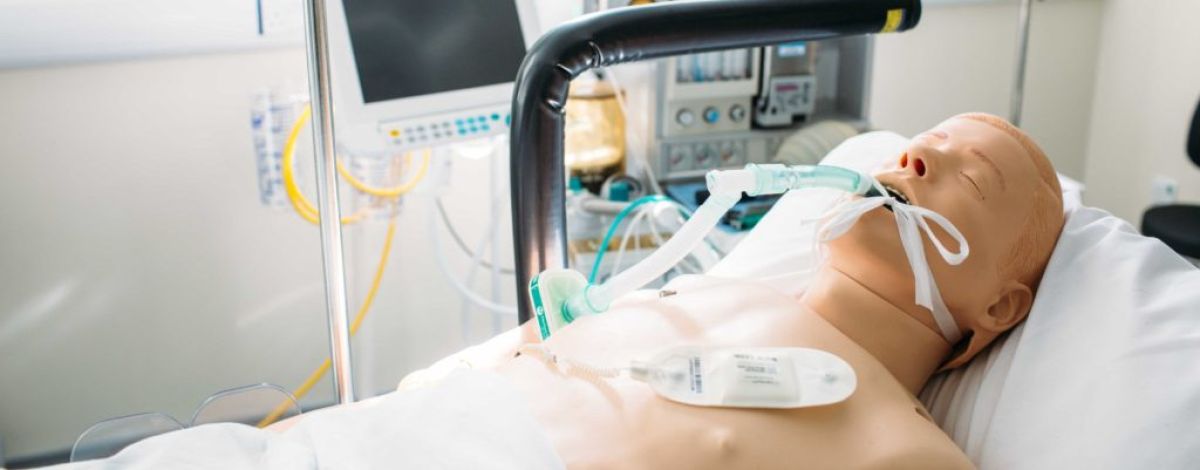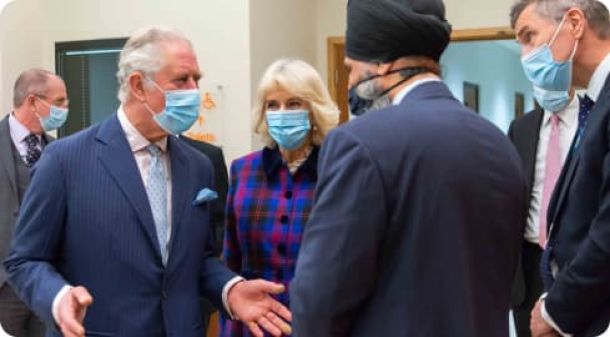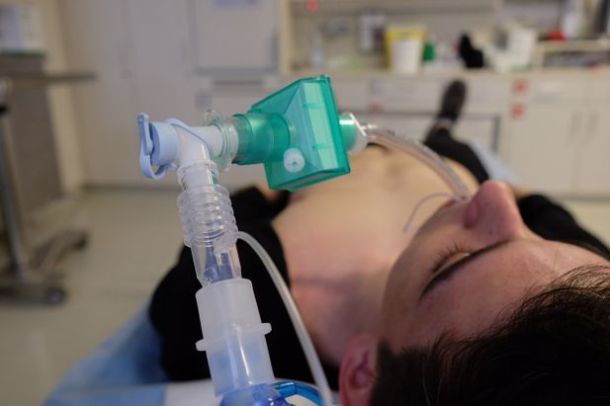
Major life sciences investment announced at the Institute of Translational Medicine

The Secretary of State for Health, Jeremy Hunt MP, was joined by Greg Clark MP and Professor Sir John Bell on Wednesday 30 August at the Institute of Translational Medicine (ITM) – co-located on the University of Birmingham and University Hospitals Birmingham campus – to make two major national life sciences investment announcements as part of the launch of the Life Sciences Industrial Strategy.
Greg Clark MP, Secretary of State for Business, Energy and Industrial Strategy (BEIS), announced £146 million of government money over four years for five projects which will support advanced therapies, advanced medicines and vaccines development and manufacturing. The programme is expected to leverage a further £253 million from partners. The projects are:
- Medicines Manufacturing Innovation Centre: A £13 million competition to establish a new centre, in partnership with industry, that will accelerate the adoption of emerging and novel manufacturing technologies
- Vaccines Development and Manufacturing Centre: To develop and manufacture vaccines for clinical trials and prepare for emergency epidemic threats, the Government is investing £66m in a new centre of excellence
- Advanced Therapies Treatment Centre: £30m investment in three new sites will help establish a network of centres, based in hospitals, that will transform the UK’s ability to develop and deliver cell and gene therapies to a large number of patients
- Expanding the Cell and Gene Therapy Manufacturing Centre: Enhancing the UK’s offer in the fast-moving field of cell and gene therapy by investing £12m in doubling the capacity of the Cell and Gene Therapy Centre in Stevenage
- Research & Development to support innovation at the manufacturing centres: Through a new collaborative scheme, the Government is investing £25m to support SMEs working in this sector and boost innovation.
Health Secretary Jeremy Hunt MP said: “The UK has always been at the forefront of scientific excellence. From the discovery of antibiotics to our world-leading 100,000 Genomes project, we have a proud history of medical breakthrough and innovation.
“I want patients to continue to be at the front of the queue for the best treatments available, whether that means early access to trials, giving staff brand new innovations and technology to work with, or being at the heart of research to share best practice quickly across the health and social care system. A strong and growing life sciences sector ensures this, particularly as we negotiate our exit from the EU.”
In welcoming the Life Sciences Industrial Strategy, the Health Secretary is also announcing £14m funding to support 11 medical technology research centres to encourage collaboration between the NHS and industry in developing and bringing new technologies to patients through the National Institute for Health Research (NIHR). This will mean patients will continue to benefit from new technologies which will help to improve diagnosis and get them the treatment they need quickly.
Business Secretary Greg Clark said: “The life sciences sector is of critical importance to the UK economy and UK health – with over 5,000 companies, nearly 235,000 employees and a turnover of £64 billion in 2016 – and the Government is committed to continuing to help this sector go from strength to strength.
“The Life Sciences Industrial Strategy demonstrates the world-class expertise the UK already has in this sector and represents the industry’s vision for how we can build on our world-leading reputation in this field.
“We will be engaging with Sir John Bell in the coming months in an effort to work towards a Sector Deal that helps us seize the opportunities in this area.”
The University of Birmingham’s Head of the College of Medical and Dental Sciences and Director of Birmingham Health Partners Professor David Adams welcomed the guests, stating: “This is an exciting time to be working in life sciences and it is a great pleasure to welcome Greg Clark and Jeremy Hunt here today.
“Here in Birmingham we are proud of our innovative work, created in exciting partnerships between academia, the NHS and industry. I am delighted to hear their announcements today, and look forward to seeing them come to fruition.”
Following the announcements Professor Sir John Bell, Regus Chair of Medicine at the University of Oxford, who led on the development of the strategy, delivered a keynote speech.








